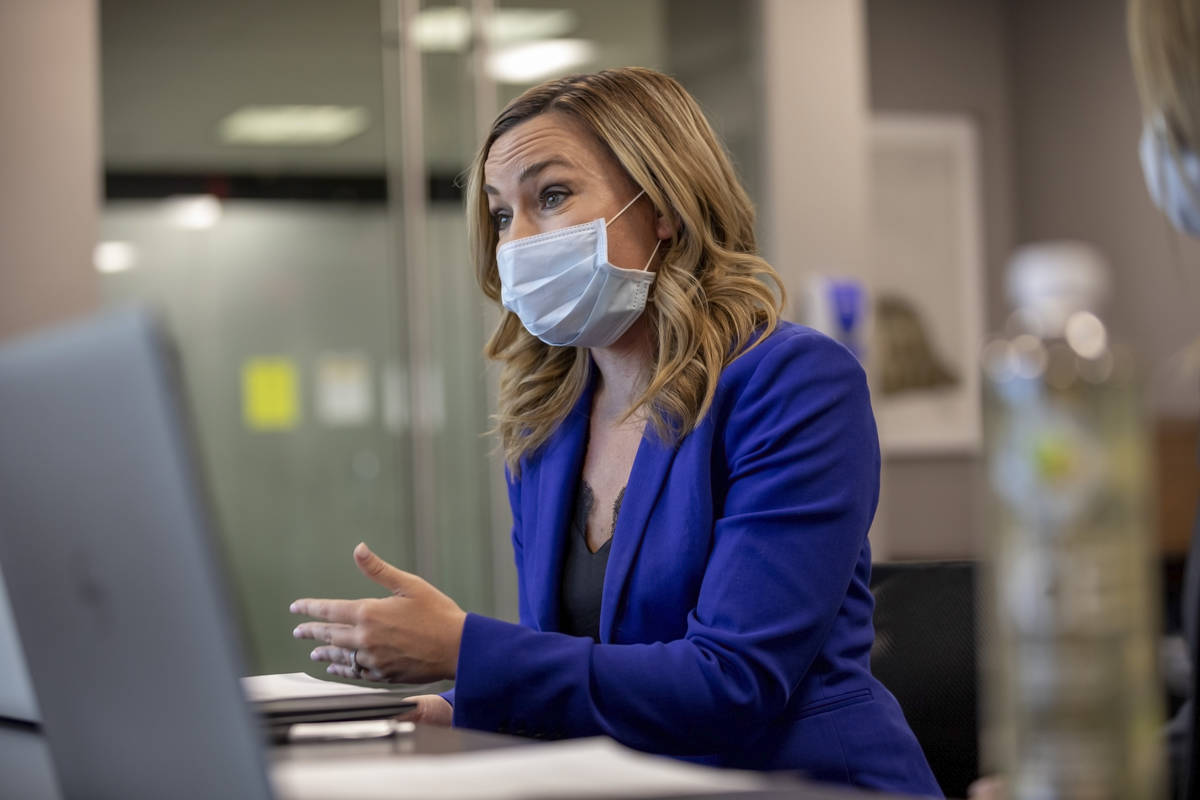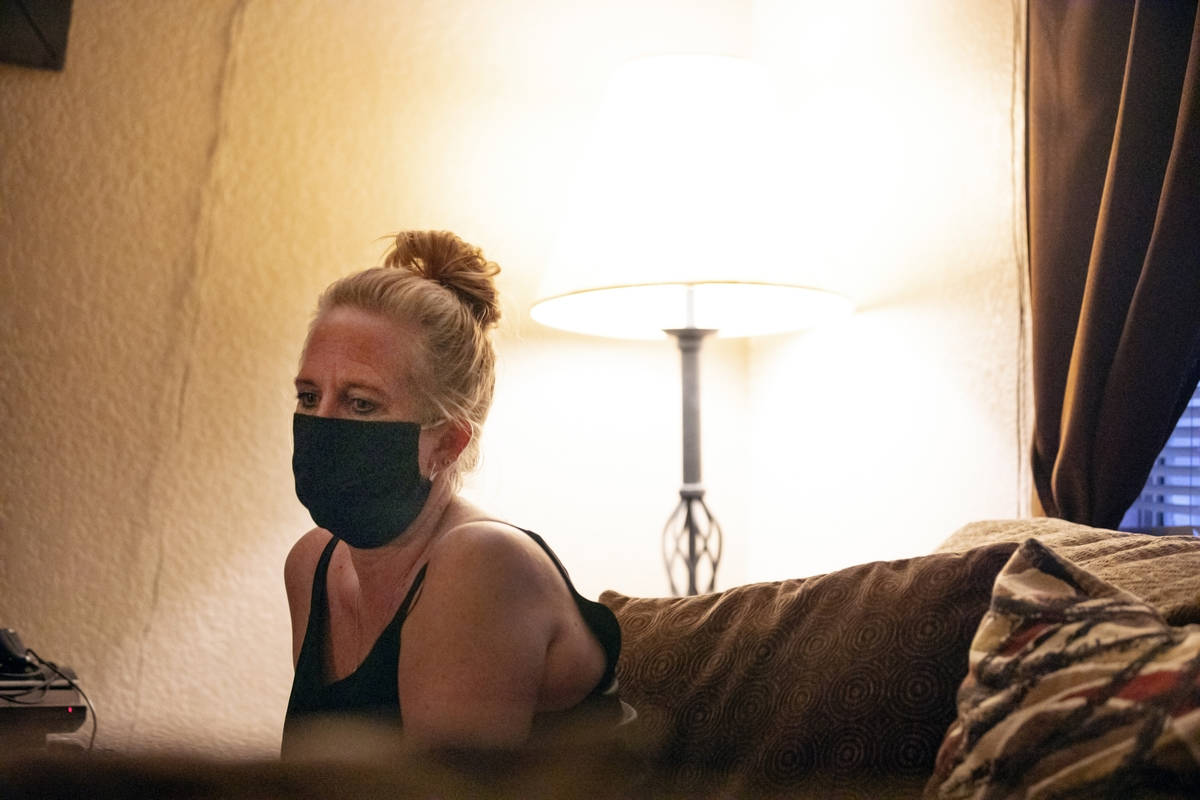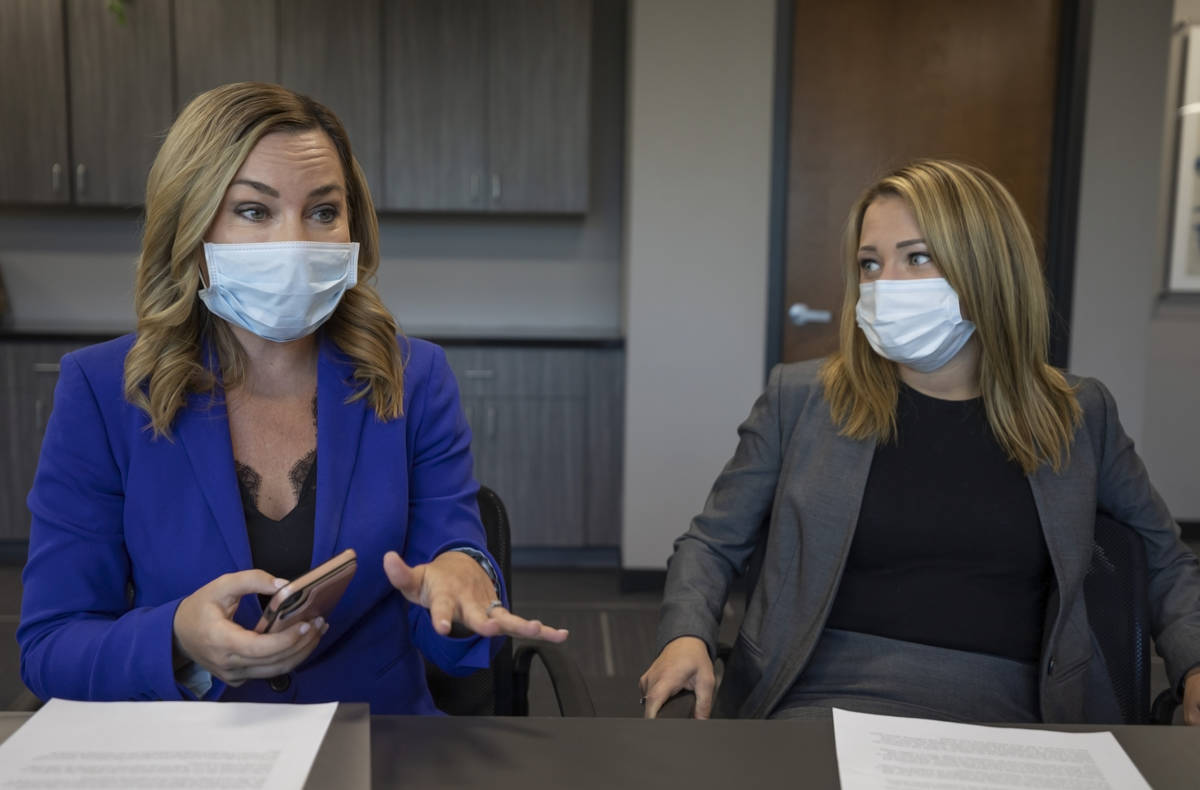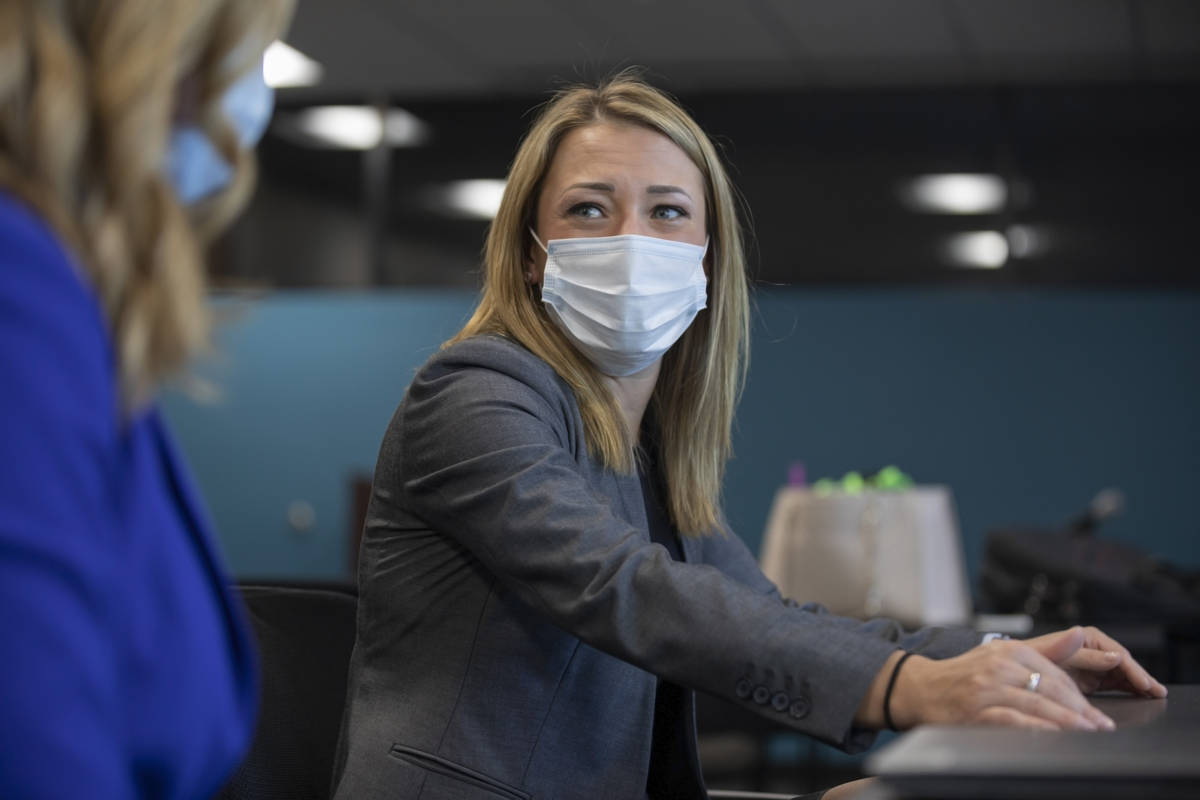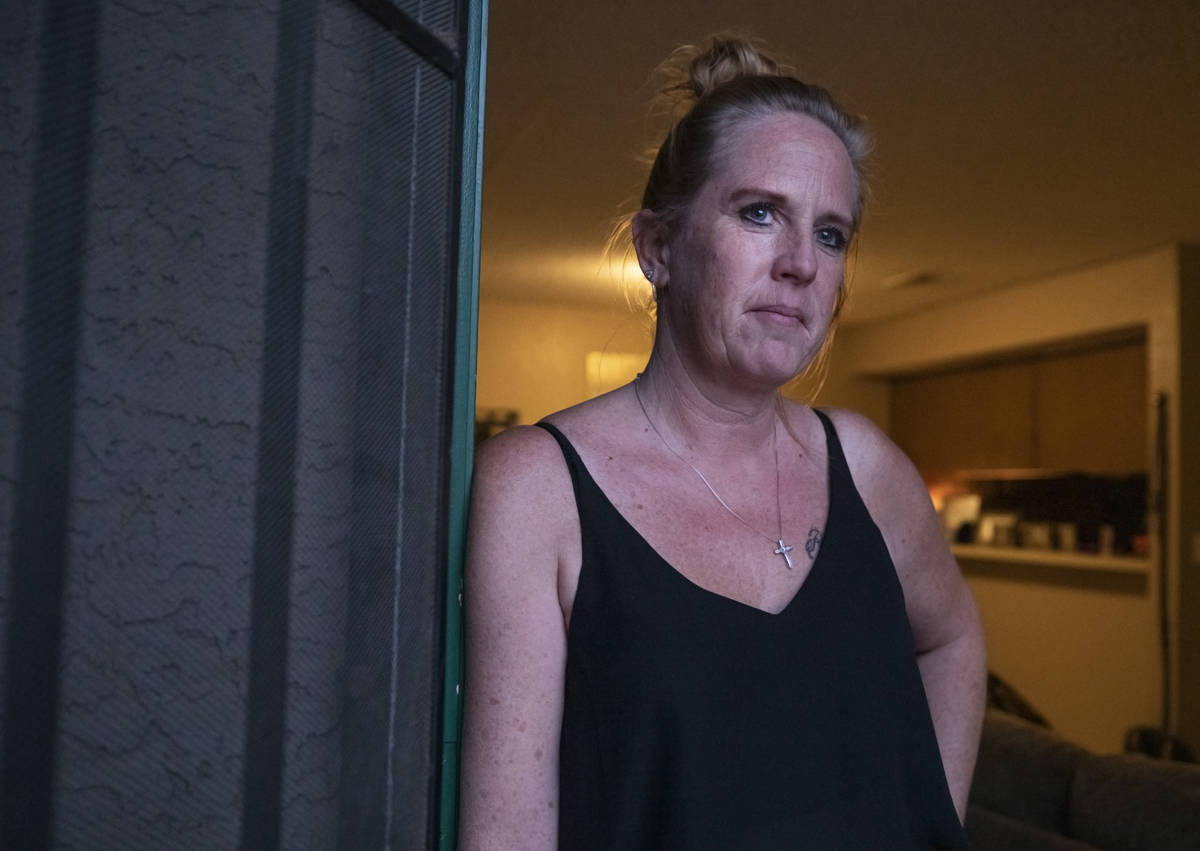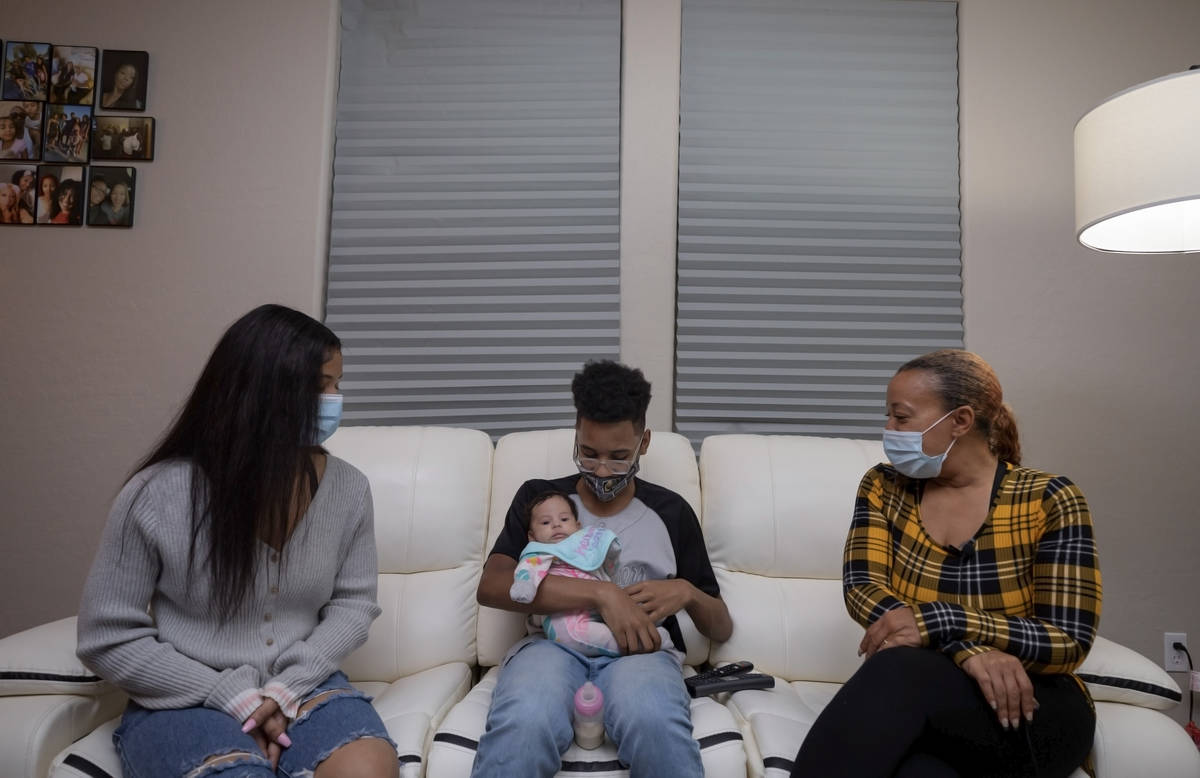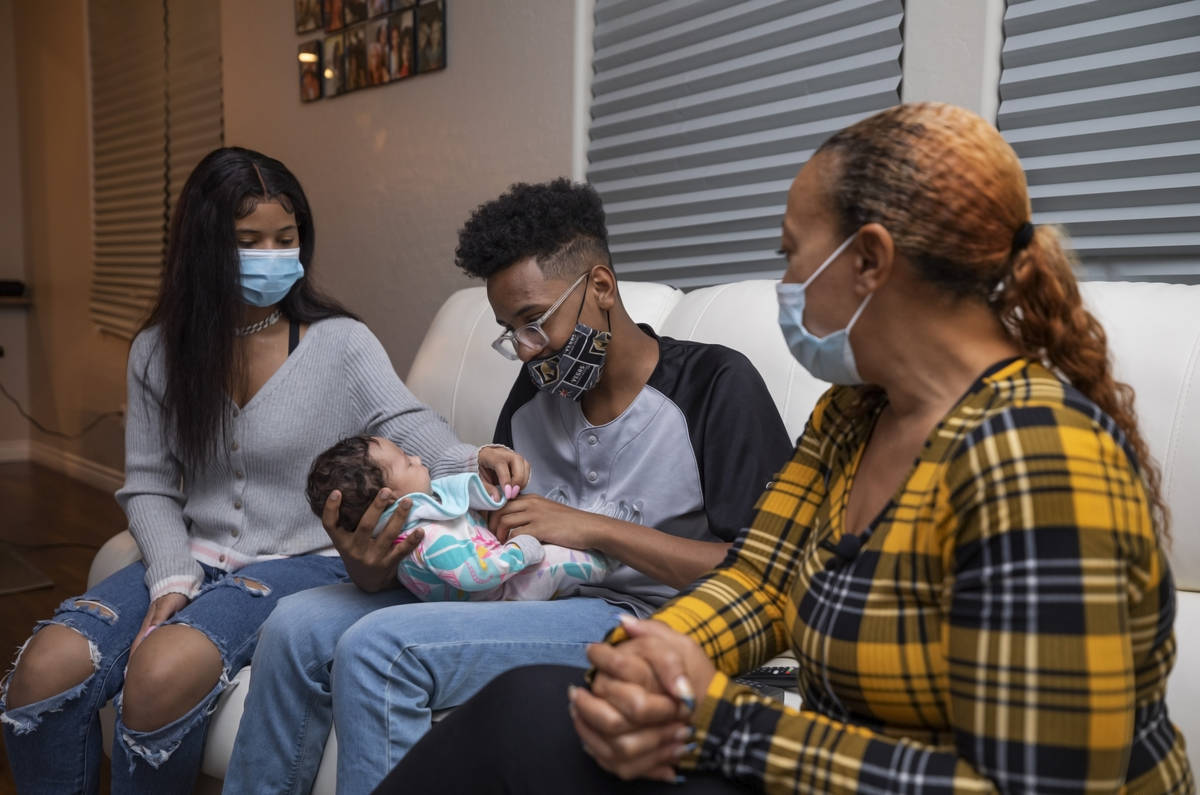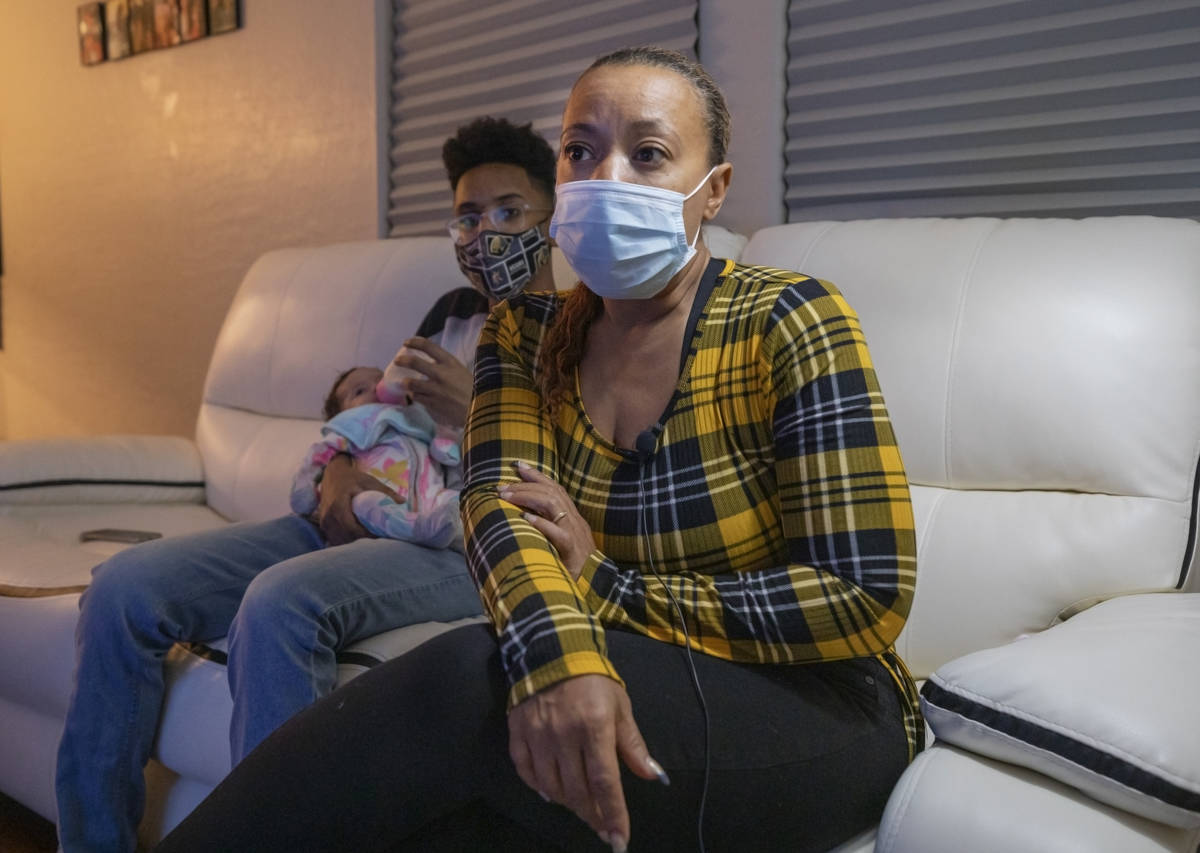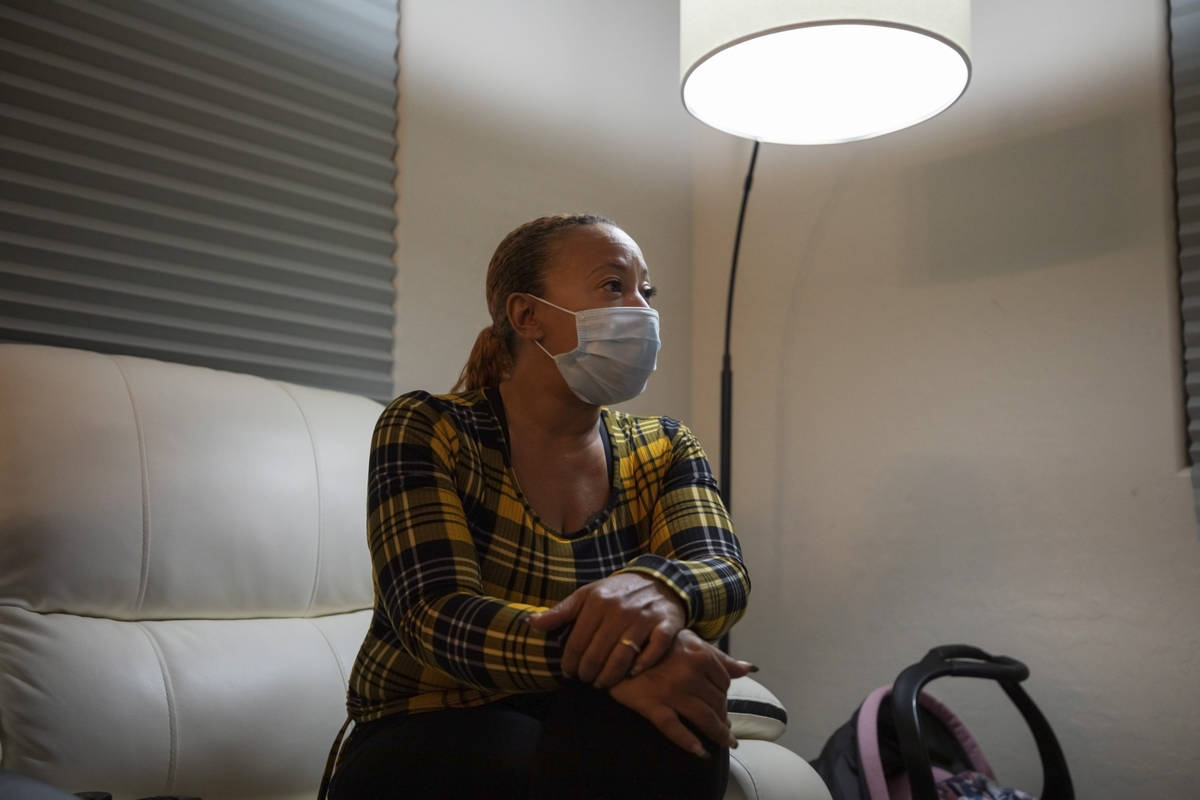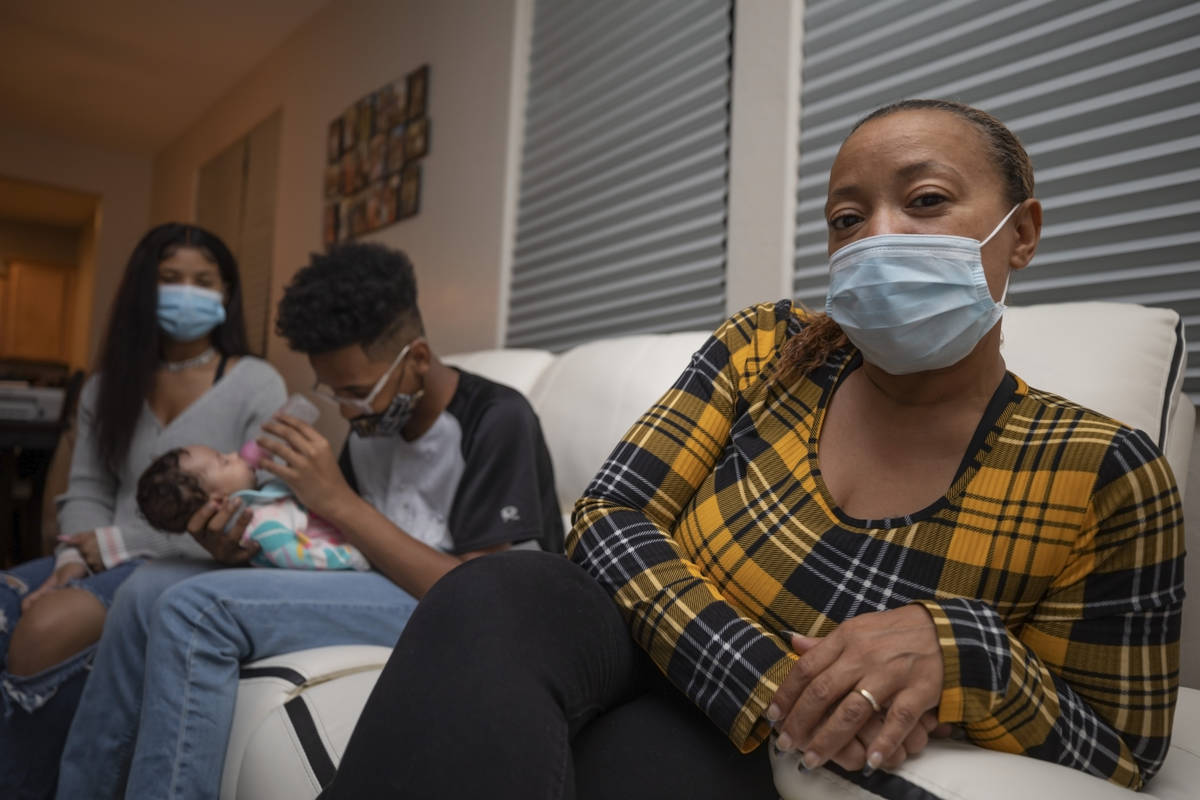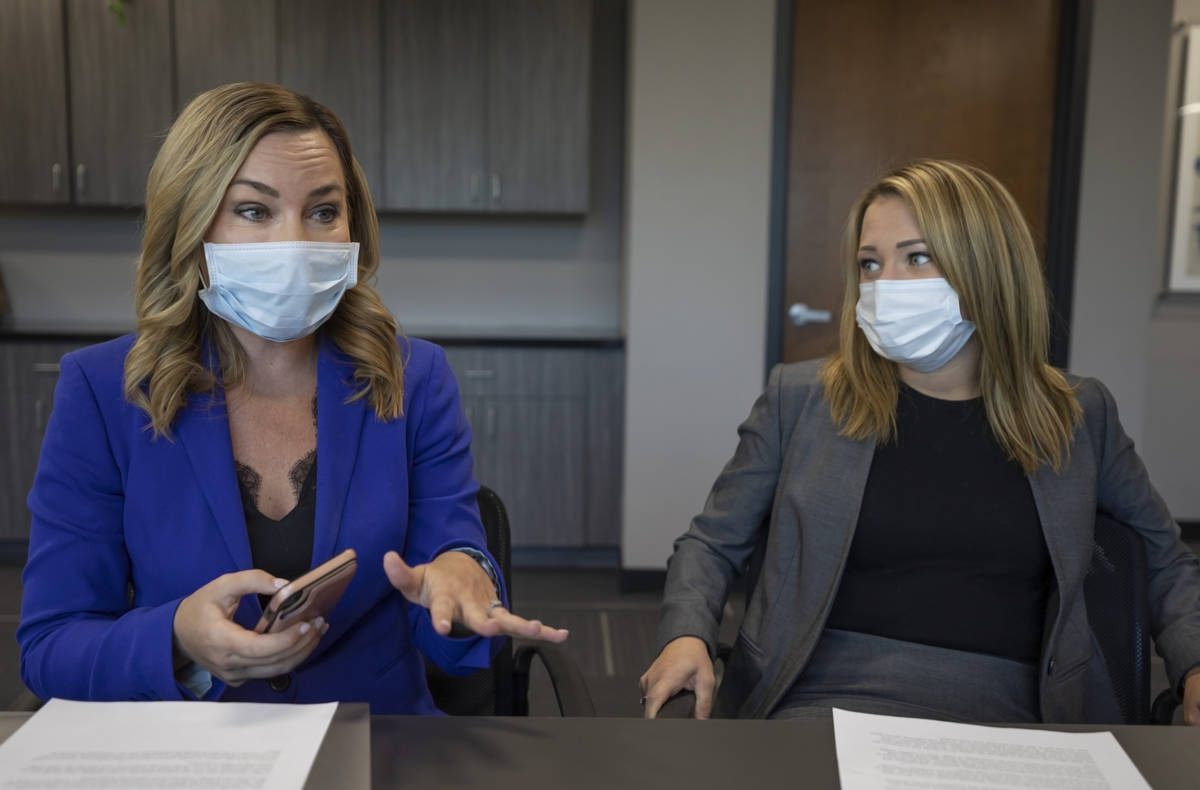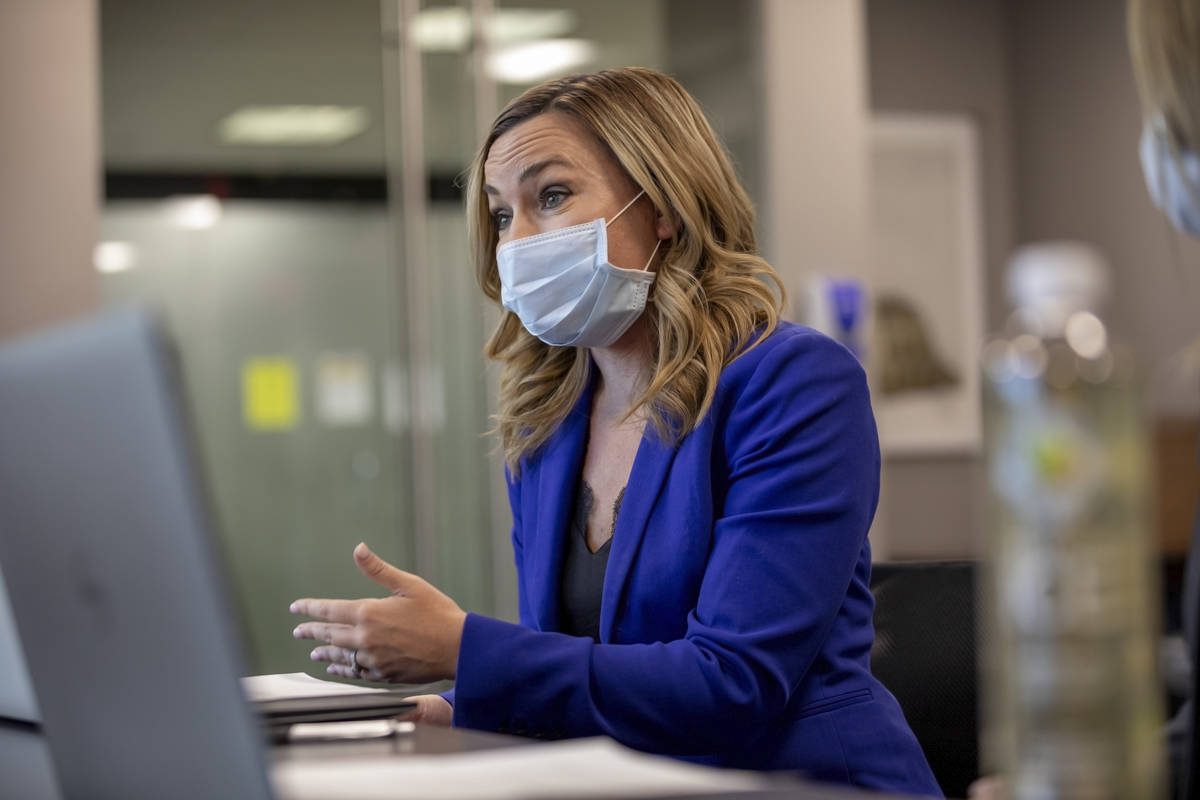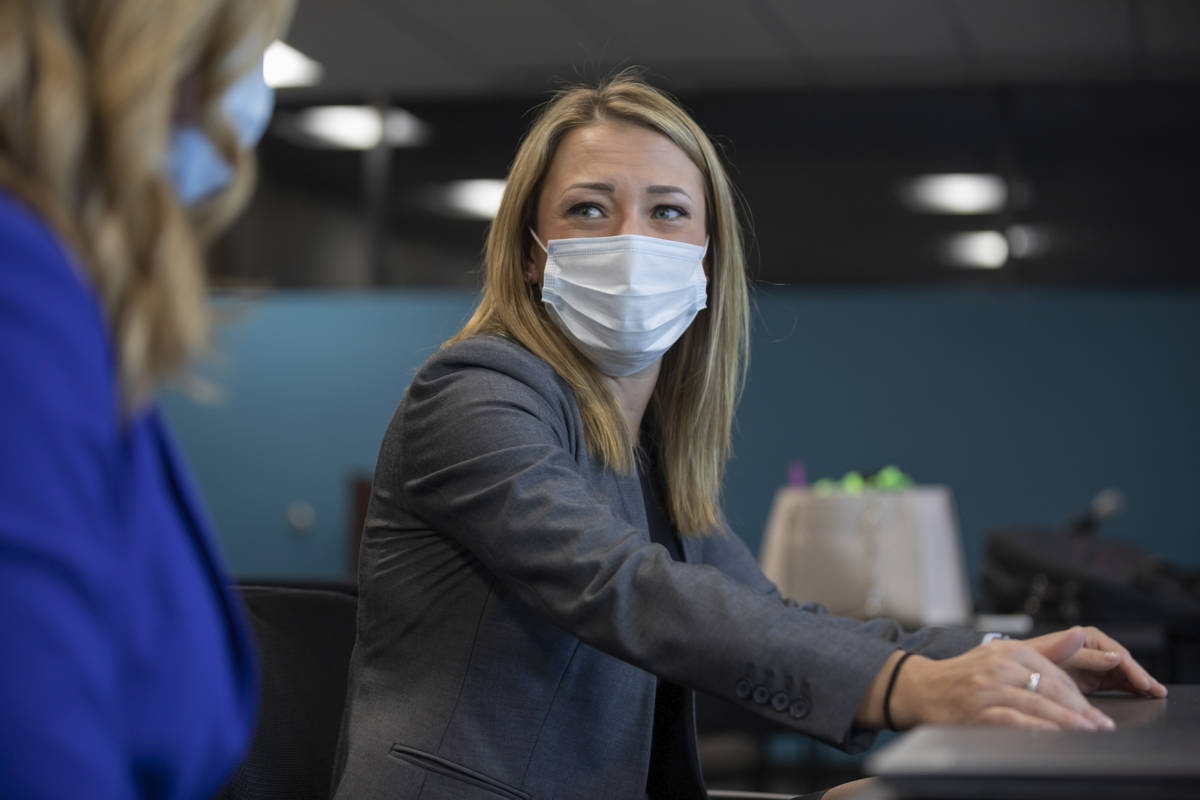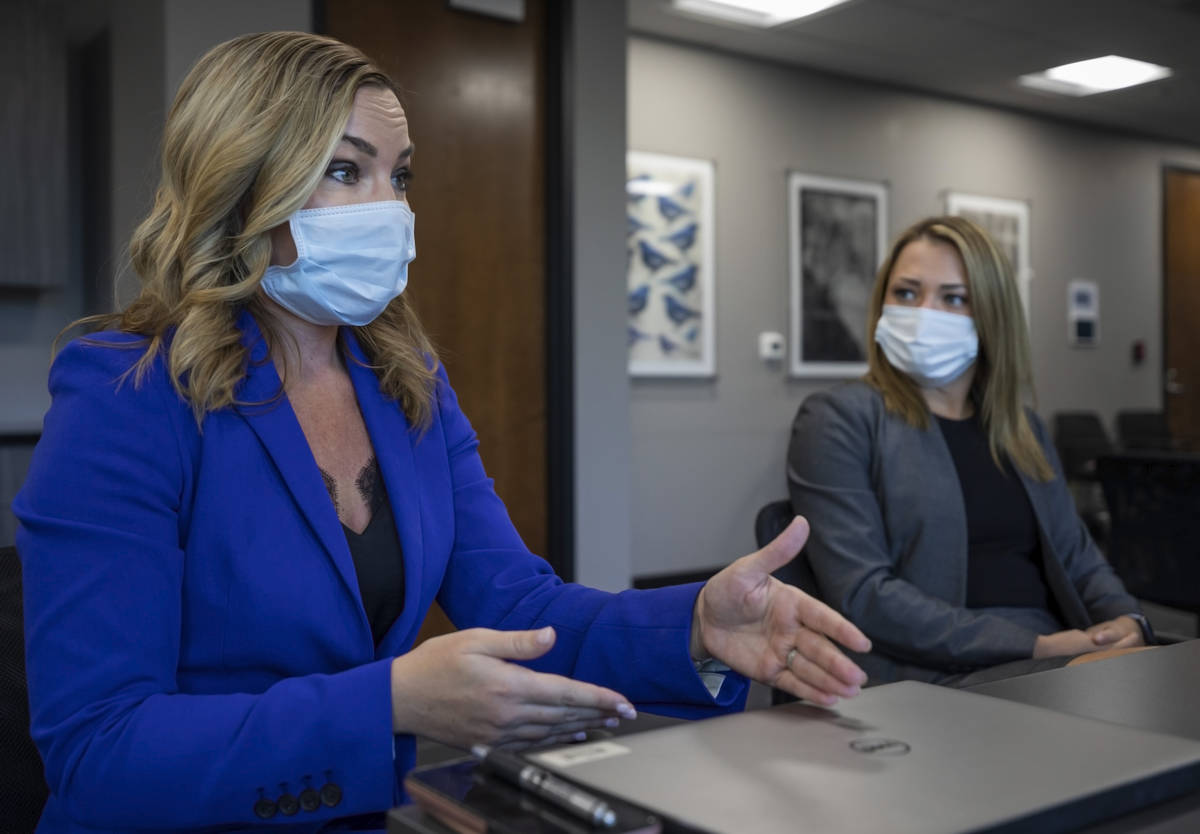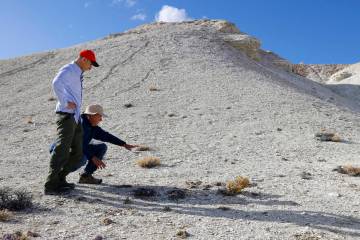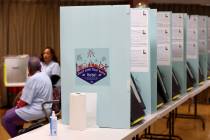‘Time bomb’: Inside an outbreak at Pahrump’s federal detention center
Throughout the coronavirus pandemic, inmates and attorneys have been trying to sound the alarm at Pahrump’s privately owned Nevada Southern Detention Center.
Now, seven months after the virus came to Nevada, an inmate and a detention officer are dead. There are nearly four times more inmates who have tested positive in the federal detention center run by CoreCivic than positive tests from all state prisoners — by far the highest numbers of any detention center in Nevada.
“It’s been a time bomb that our office has been waiting to go off since March,” said Maggie Lambrose, one of two assistant federal public defenders who spoke with the Las Vegas Review-Journal on Friday about conditions inside the detention center.
Most of the inmates are in the custody of U.S. Immigration and Customs Enforcement or the U.S. Marshals Service. As of Friday, at least 102 had tested positive throughout the pandemic, according to statements from the agencies.
There have been 91 detainees in U.S. Marshals’ custody who have tested positive, 52 of whom have recovered. Eleven ICE detainees have tested positive. There have been 25 cases among CoreCivic employees in Pahrump, four with active illnesses, company spokeswoman Amanda Gilchrist said last week.
The facility currently has about 500 inmates, according to ICE and the Marshals Service. The Nevada Department of Corrections, with nearly 2½ times more people in custody, has had only 27 inmate cases, according to the state Department of Health and Human Services.
Almost all of the inmates at the Pahrump facility are awaiting trial or sentencing, meaning they haven’t been convicted. Lambrose and Assistant Federal Public Defender Erin Gettel said their office has succeeded in only a handful of requests for compassionate releases due to health concerns for sentenced inmates.
Brandon Patton, a 29-year-old who was awaiting sentencing for drug and probation violation charges, died Oct. 8 after two motions in his case were denied.
“The reality is that most people who were already going to be detained are still going to be detained even during this pandemic,” Gettel said. “So we’ve got to figure out a way to do it safely so that it’s not a death sentence.”
‘Getting ready to explode’
In phone conversations and affidavits — one of which was signed by 56 detainees — inmates described living conditions that have created a “hotbed for the disease,” Lambrose said.
Inmates said the facility only tests those with a fever of at least 100.4. The Marshals Service said in a court hearing last Tuesday it will begin testing new arrivals, but there has been no widespread testing of every inmate at the facility.
Cleaning is irregular, social distancing is impossible, and guards walk from virus-free units to those on quarantine, inmates said.
When the detention center isolates new arrivals or those with a positive test, they are sent to a solitary cell and let out for 30 minutes three times a week, according to court documents.
In a statement sent Friday, CoreCivic spokesman Ryan Gustin disputed that the “hole,” as inmates call it, should be considered solitary confinement but did confirm that the facility uses “separate housing units … when someone is confirmed positive.”
The Centers for Disease Control and Prevention recommends that detention centers create medical isolation “distinct” from solitary confinement to avoid inmates hiding symptoms out of fear of being sent somewhere normally used for punishment.
Last week, inmates told the Review-Journal that people with positive results were not being removed from dormitories, which house about 90 people each. Gettel and Lambrose said they have heard similar reports from their clients.
“It’s a boiler that’s getting ready to explode,” inmate King Umoren said Wednesday.
Umoren, who tested positive in August and has recovered, said there’s increasing tension between the men in his unit, especially after they were told that eight inmates with positive results would not be isolated. He counted a dozen others showing symptoms on Wednesday.
Mary Barbee, 68, said last week that her two sons, both with chronic asthma, tested positive in the Pahrump facility. One brother, 48-year-old Melvin Dillon, was being kept in Umoren’s unit after his test came back, she said.
Barbee, from Oregon, created a letter-writing campaign advocating for her sons’ release while they await trial. But no one answered, and her worst fears have come true.
“I have been crying for weeks now, begging people to help them, and help them, and help them,” Barbee said. “And now look at them.”
In Friday’s statement, Gustin did not address questions regarding reports of CoreCivic failing to isolate positive detainees. He also declined to grant an interview with the warden.
“Like others, we are relying upon the expert guidance of the CDC and other health authorities, as well as that of our government partners, to combat this unprecedented health crisis,” he said.
An ‘unnecessary’ death
After his first motion to reconsider his detention status because of underlying conditions was denied, Patton wrote letters to his family. He feared getting sick and dying before seeing them again, his public defender wrote in court documents.
Patton died six weeks after U.S. Magistrate Judge Andrew Gordon denied his second motion over the summer. He died intubated in a hospital room, “gasping for air,” thousands of miles from his family, according to court filings.
“Brandon had accepted responsibility for his crimes, but the detention center failed to accept responsibility for his health, and as a result he died,” Patton’s family said in a statement sent to the Review-Journal. “We are devastated by the untimely and unnecessary death of our father, son, brother and friend.”
When his first motion was dismissed, Gordon acknowledged that Patton was at risk for the deadly virus.
“I hope he is doing the best he can to maintain his avoidance of getting exposure to it but, you know, unfortunately that’s the risk of crimes — committing crimes and putting yourself in a position that he’s in right now,” he said, according to a transcript of the hearing.
‘You don’t get tested’
Three people in Daniva Chandlers’ family had died of the coronavirus when her husband, Tavaras, was arrested in August and taken to Pahrump.
“That’s my lifelong partner. That’s the only person I’m going to have. I don’t want to lose him to something that could have been prevented,” Daniva Chandler said last week.
Talking through his wife’s phone, Tavaras Chandler said he worries about what would happen to his family if he were to get sick and die, especially because his wife is a stay-at-home mom struggling to care for four children and a 2-month-old granddaughter.
And he said he is always worried that a stray cough will turn into something worse.
“We just want people to help us,” he said. “You don’t necessarily have to let me out, but let the ones that they can let out, because people are in here stressing. People are scared.”
Roosevelt Jones said CoreCivic should at least improve social distancing inside the facility, where he’s been since August. Jones said he listens to people cough at night, while they are denied a test during the day.
“You come in here, you don’t get tested,” said Jones, who, like Tavaras Chandler, was arrested on a probation violation and has not been convicted.
While ICE ordered widespread testing of its detainees in September, the Marshals Service said Friday that individual facilities are responsible for inmates’ medical care, along with “quarantine decisions or policy adjustments.”
“When it comes to ‘widespread testing’ at any of our facilities, including NSDC, we follow the direction of the local and state health departments, as well as our government partners,” Gustin said.
Jones is one of many inmates who wrote letters and petitions to judges. Gettel said Friday that she’s never seen a more “concerted action” from inmates.
But filing formal complaints feels like a waste of time, Jones said.
“They act like we don’t matter, like they don’t care if we get sick,” he said.
Contact Katelyn Newberg at knewberg@reviewjournal.com or 702-383-0240. Follow @k_newberg on Twitter.



